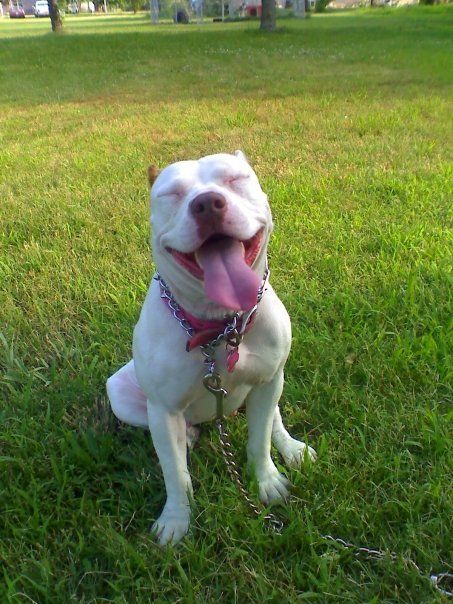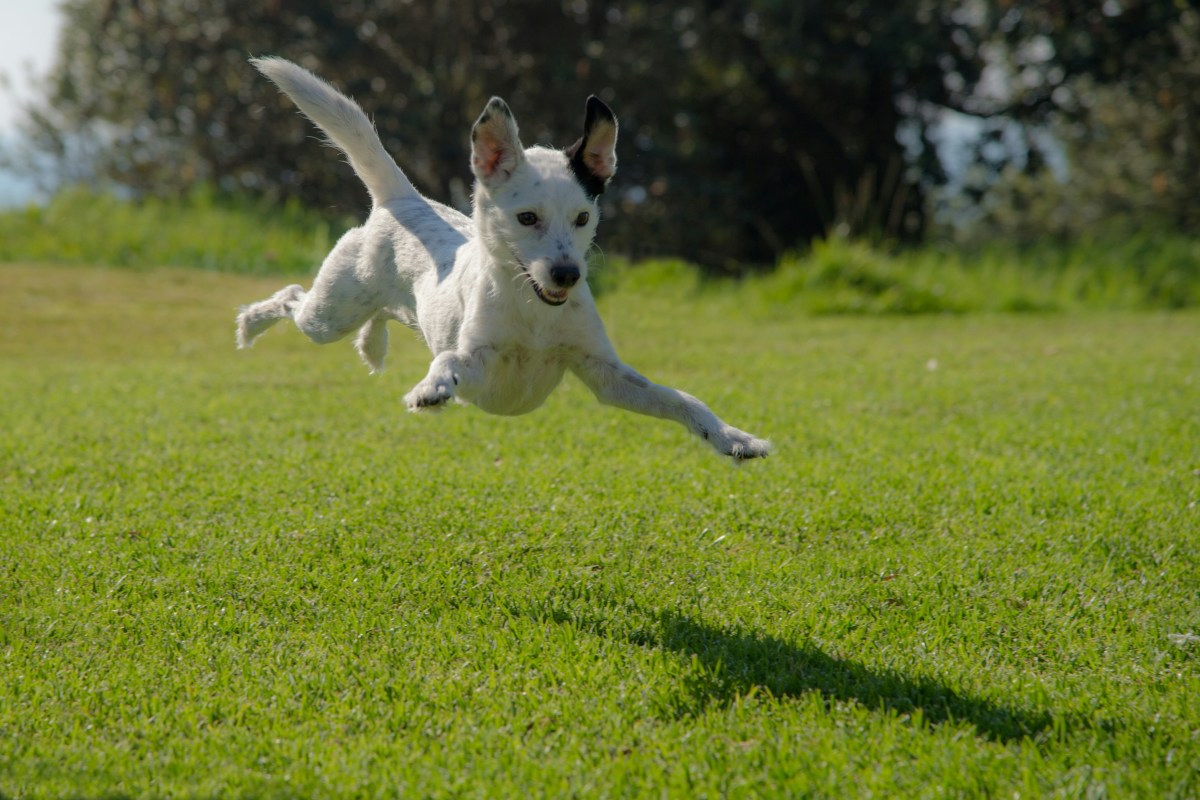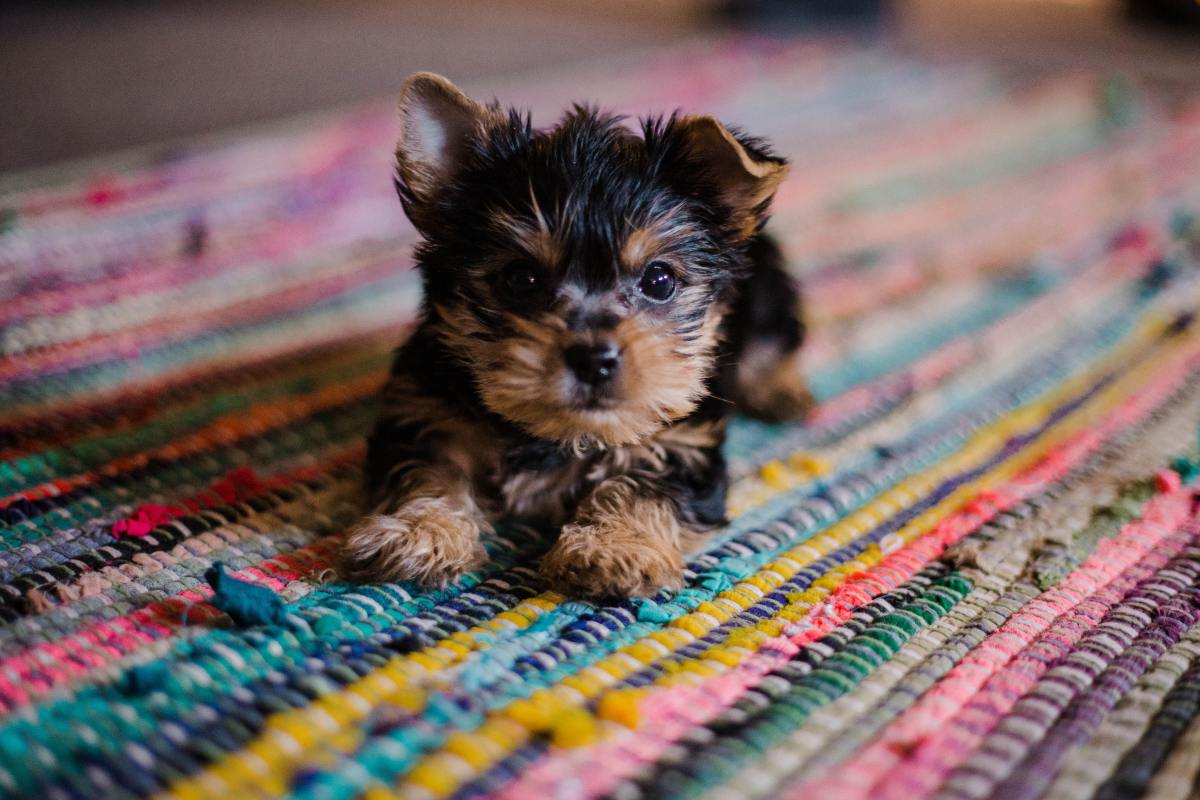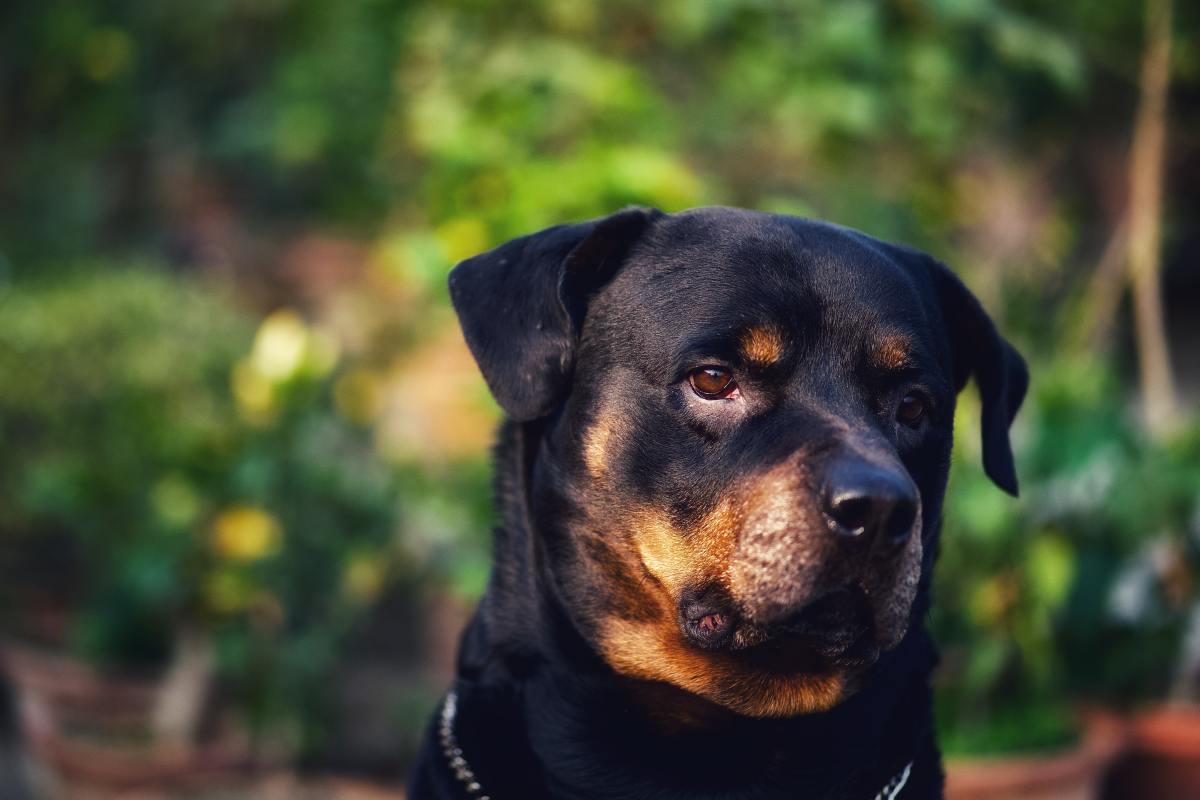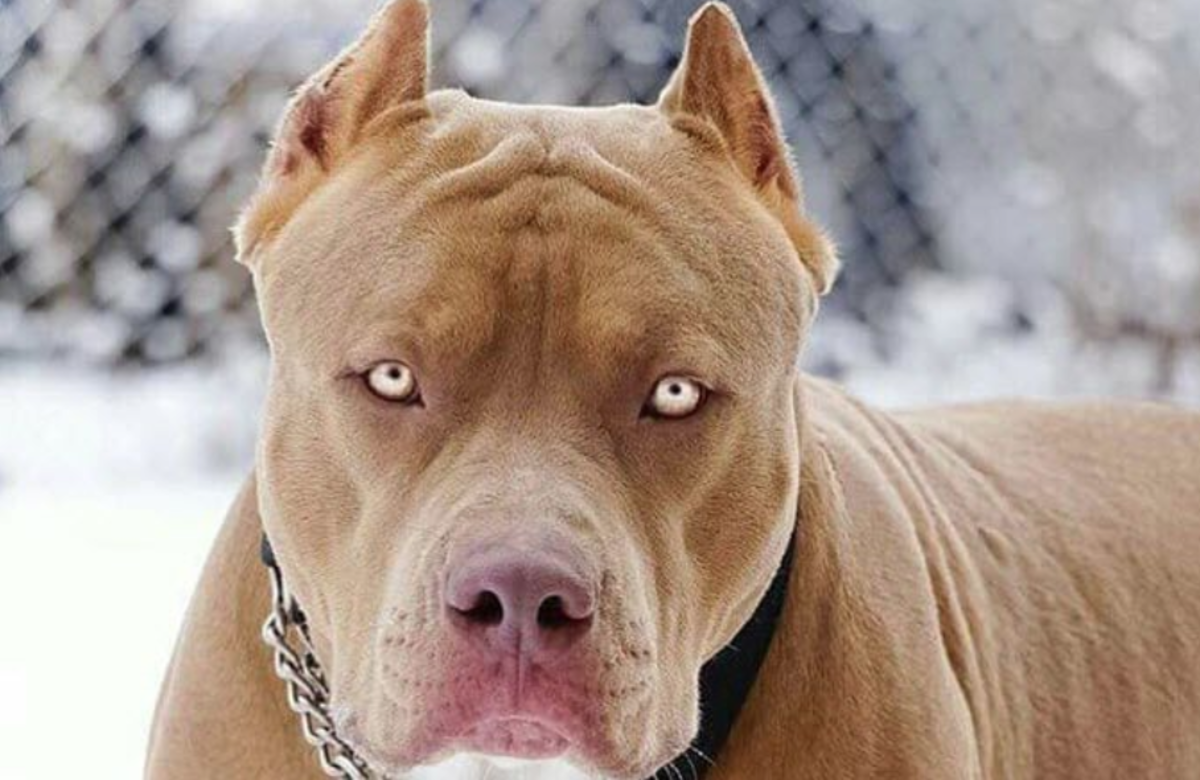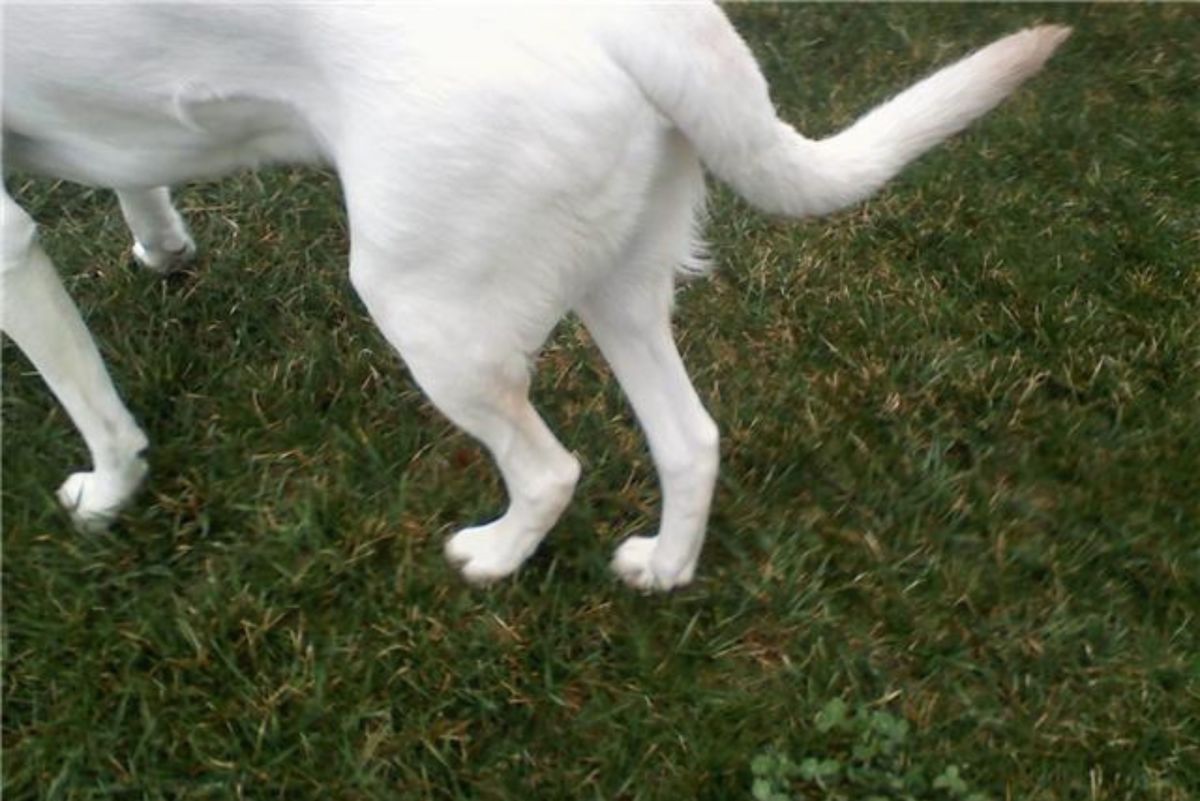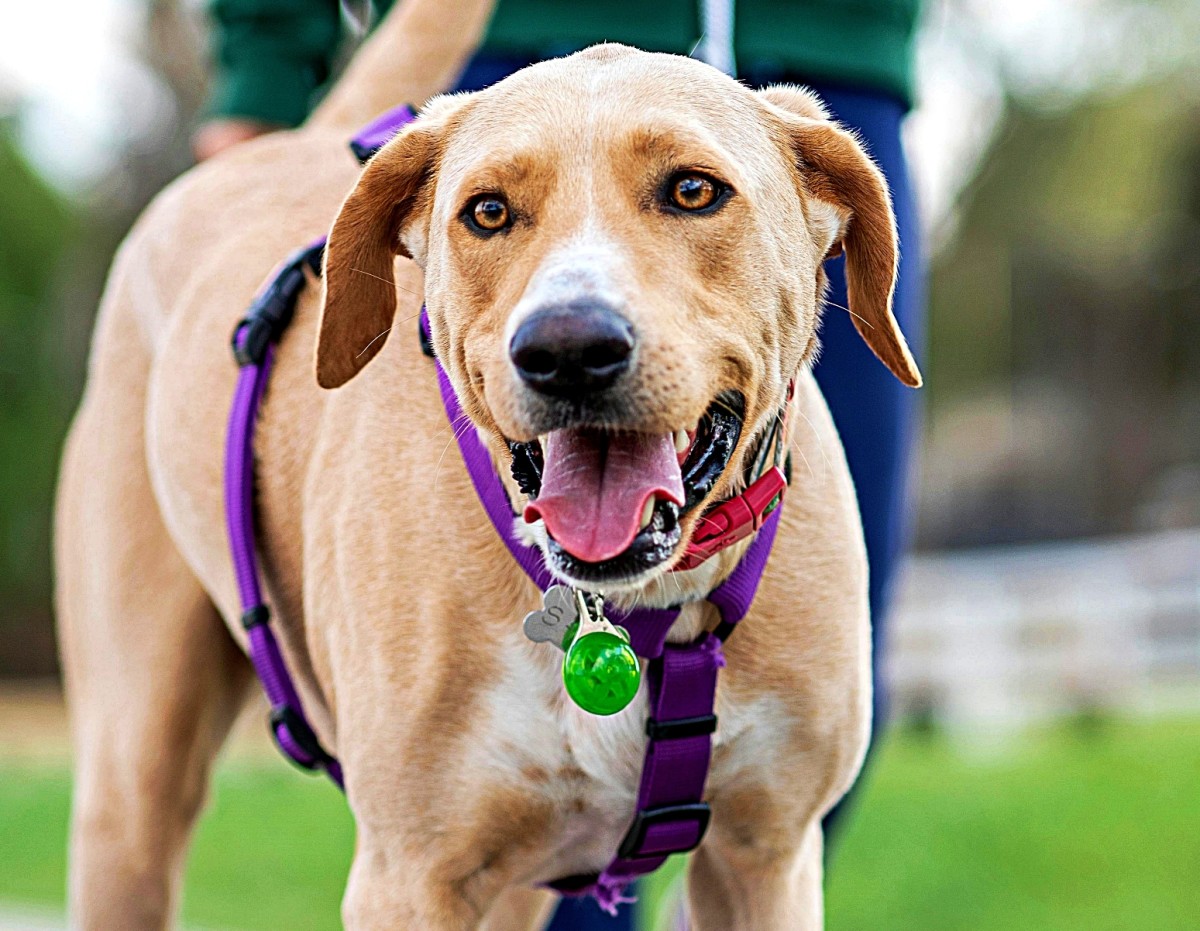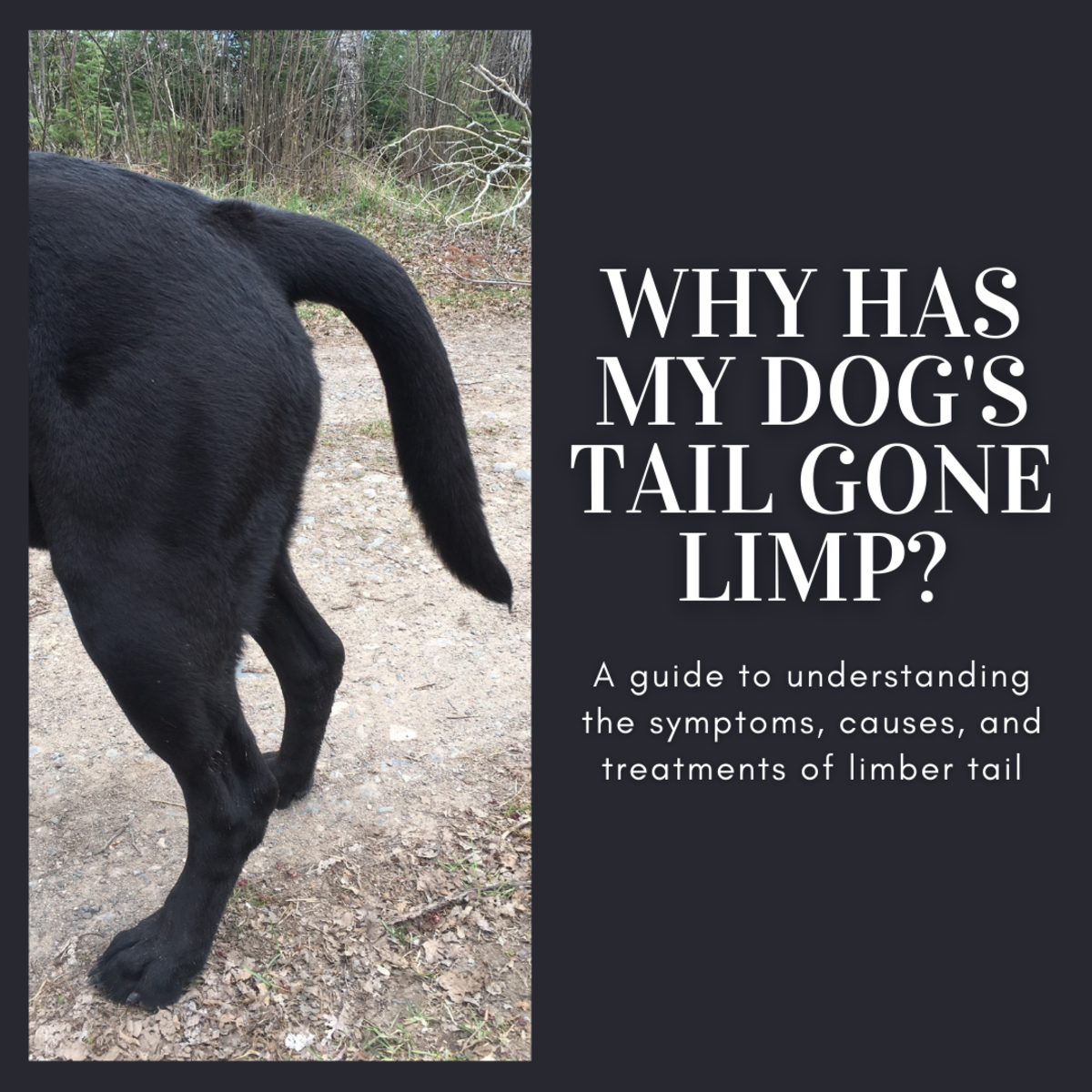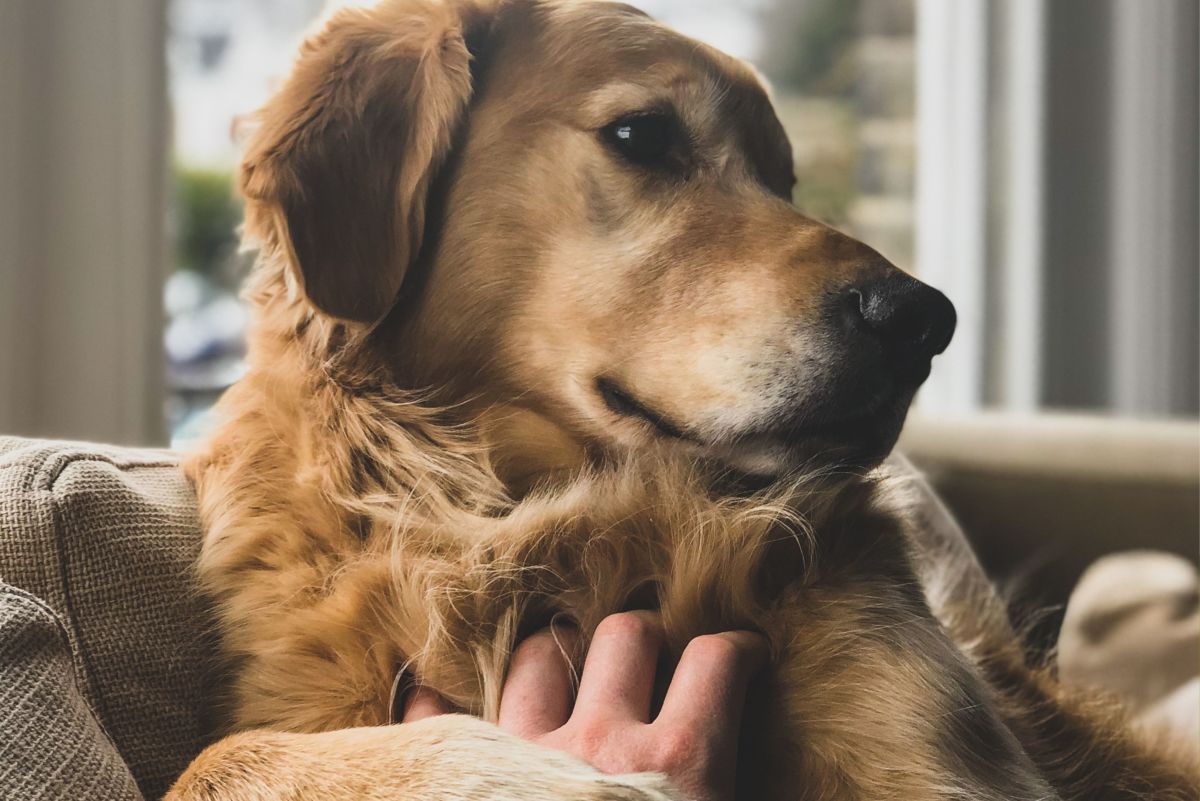Common Health Problems of Pit Bulls and How To Care For Them
A Healthy Pit Is a Happy Pit
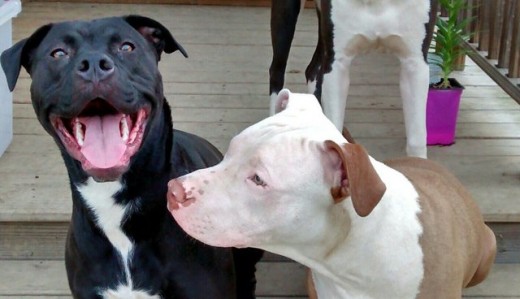
Introduction: About Pit Bulls
Few dog breeds are as beloved and popular as the Pit Bull Terrier. These medium-sized dogs are extremely friendly with people and even babies, and were once known as “nanny dogs”. Though they can be aggressive with other dogs, early training and socialization can nip that in the bud. Taking proper care of Pitbulls is actually pretty easy if you pay attention to a couple key factors, and they will reward you by being a loyal, sweet, lifetime friend. There are some specific health problems that Pitbulls can get that you need to watch out for.
Health Problem 1: Weight Gain
Pitbulls are highly muscular and active dogs, which means they love to eat. They especially like high protein and calorie diets, and will beg you for table scraps with a laser-like focus. Though it may be tempting to give in and give that cute face some of your steak strips, you must resist. Because these dogs love to eat, they can be prone to getting overweight and even obese. This is especially true if you don't take your Pitbull out for some daily exercise. If this dog breed gets too much human food and not enough exercise, it can even lead to thyroid problems, which will make these dogs even fatter and lazier. If a Pitbull gets a bad thyroid problem, the only solution is doggy medication, diet and exercise. However, to keep your Pitbull from turning into a chunky monkey from the start, it is important to keep them on a healthy diet and exercise regimen. This will also prevent them from getting heart problems later, which Pitbulls are also prone to. A good diet and exercise program will go a long way in preventing any heart disease or heart murmer. Feed them quality dog food that has lots of protein and vitamins. And take them for walks and runs every day. Not only will exercise be good for your dog's health, it also prevents them from getting bored and digging up your garden. The last thing you want is an upset and unhealthy dog. Preventing your Pitbull from getting overweight will actually go a long way in stopping other problems that are common in this breed.
A Weighty Problem
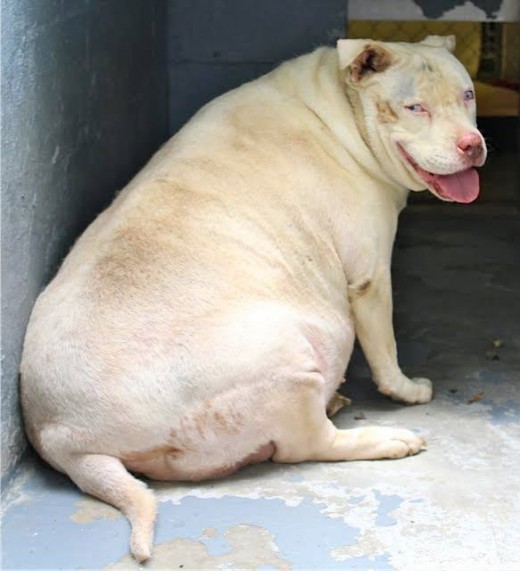
Health Problem 2: Hip Dysplasia
Pitbulls are medium-sized dogs, with a heavy and sturdy muscular and skeletal system. But like many other medium and large dogs, they are very prone to hip dysplasia. This is a genetic problem in the joint between the hip and hind leg. It can cause an uneven walking pattern and pain in the back legs. While this condition is largely hereditary in the breed and particularly affects older dogs, keeping your Pitbull at a healthy weight will greatly reduce the chances of this condition. But if your Pitbull ends up getting hip and leg problems even though they are not overweight, there are solutions. There are doggy medications available to ease the pain of bad hips. A lot of these are joint medications like glucosamine and chondroitin, which is what humans use to help their joints too. These medications relieve pain and can even help the joint build strength and lubrication. Before you go crazy at the supplement store, get some help and direction from a veterinarian to make sure it is safe for your dog. You can also help your Pitbull's hip dysplasia by preventing them from climbing stairs and steep inclines. Block off the stairs in your house or consider a doggy ramp in places where your Pitbull commonly likes to go. There are also surgeries for dog hip dysplasia that can greatly help or even eliminate hip problems. Surgery should be a last resort though, as it can be dangerous and expensive. There are a couple other conditions affecting Pitbulls that might require surgery as well.
This Is What Hip Dysplasia Looks Like
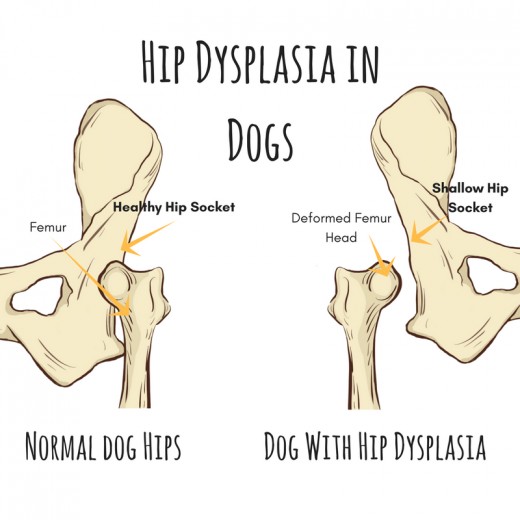
Health Problem 3: Cataracts
If I haven't broken your heart yet with depressing information, hold on, because there's more. There is also a well-documented history of eye problems for this breed of dog. Pitbulls are prone to developing cataracts later in life. Cataracts is the gradual thickening of the lens, until a milky cloud forms over the area and it becomes difficult for the dog to see. Fortunately, there is a pretty simple surgery for removing cataracts, and it is highly successful. By and large, cataracts do not become bad enough for older dogs to require surgery. A perky Pitbull can actually live with cataracts for some time. It will only be a major issue if their vision is impaired.
Cataracts Create A Milky Blue Layer Over the Eyes
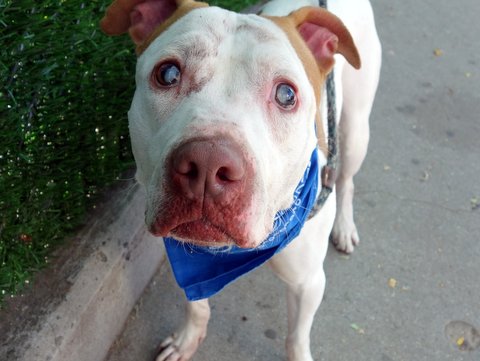
Health Problem 4: Sensitive Skin
Another condition that Pitbulls are naturally prone to is a myriad of skin issues. This can range from itchy allergies to tumors and skin cancer. Allergies tend not to be that bad of a problem. Grooming your Pitbull regularly and cleaning their ears will prevent a lot of allergies. They have very short hair, and only require a little brushing. But because they have such short hair, they can sometimes get sunburns, which is why good shade is an absolute must for this breed. If you live in a region filled with the absolute evil that is known as bugs, it might be a good idea to get bug repellent for your Pitbull. Ticks, mosquitoes and other biting bugs can irritate the Pitbull's skin more than some other breeds. If the itching from allergies and bugs is bad enough, a Pitbull will scratch themselves until cuts and open sores develop, and the problem will be a lot worse. Prevention is key for healthy skin. Skin cancer is a more serious issue that Pitbulls can face. Watch out for lesions and open sores as well as tumors. Skin cancer is usually a medical issue that requires surgery, so consult a veterinarian as soon as possible if you notice something amiss on your Pitbull's skin.
Fleas, Ticks or Allergies, Your Pit Bull Loves To Scratch
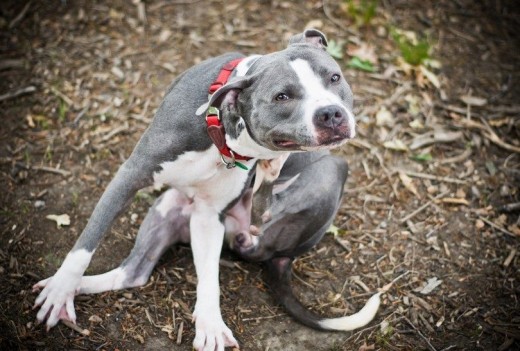
Health Problem 5: Social
No we are not talking about doggy psychiatrists, but mental and social health is a very important part of any dog's life, and the Pitbull is no exception. Part of a Pitbull's overall health includes good socializaiton and training. In the first paragraph I talked a little bit about how Pitbulls tend to be much more human-friendly than dog-friendly. They need to be around other dogs and people from a very early age to learn how to play in a non-aggressive and gentle way. They also need a strong pack leader to train them. When you are training your Pitbull, be strong and commanding but also compassionate and loving. Pitbulls tend to get a lot of bad press in the media as being aggressive and violent. This is due, in part, to horrible degenerate scumbags who abuse their Pitbulls and train them to be more aggressive than they naturally are. It is also due to people seeing this activity and misunderstanding the true nature of the Pitbull. For these reasons, it is extra important, as a Pitbull owner, to train them to be friendly to humans and other dogs. Not only does it help Pitbulls avoid bad and unfair press, but it is good for the dog's health and well-being. If a Pitbull is too dog-aggresive, it may not be able to have companions and it will suffer from loneliness and depression. And if a Pitbull is human-aggressive, the situation is even worse because those kinds of dogs usually don't get to live long and happy lives. This is why it is so important to properly train your Pitbull to be friendly and non-aggressive. Responsible Pitbull owners can do a great thing by reducing the bad reputation that these loving animals have unfairly attracted. With these tips, you can be sure to keep your Pitbull healthy, happy and the perfect companion
This Is A Loving Friend and Companion, Not A Monster
